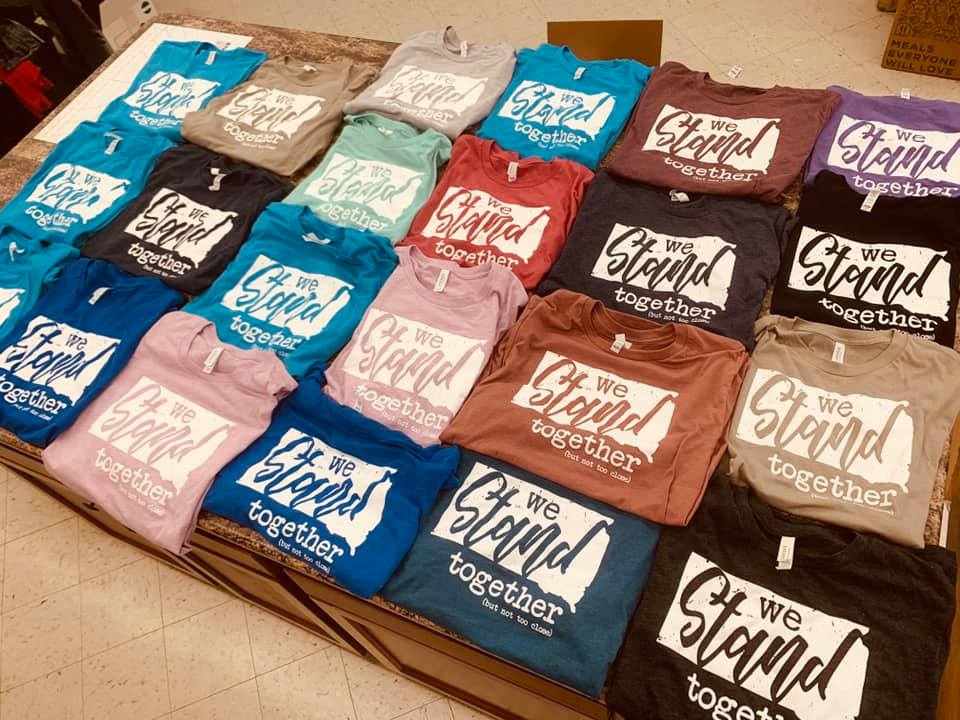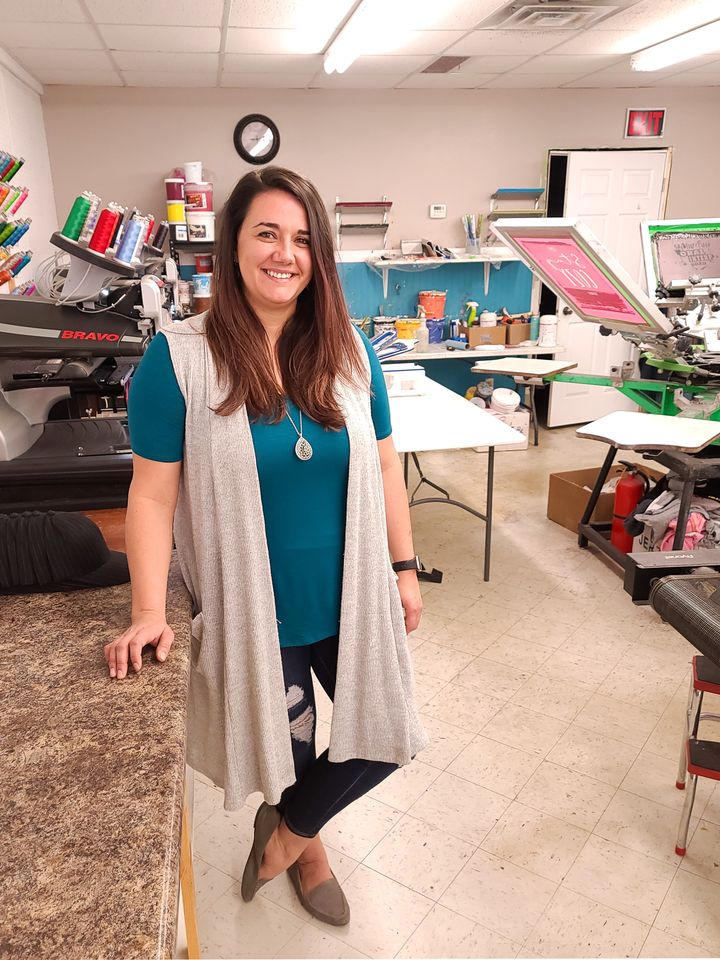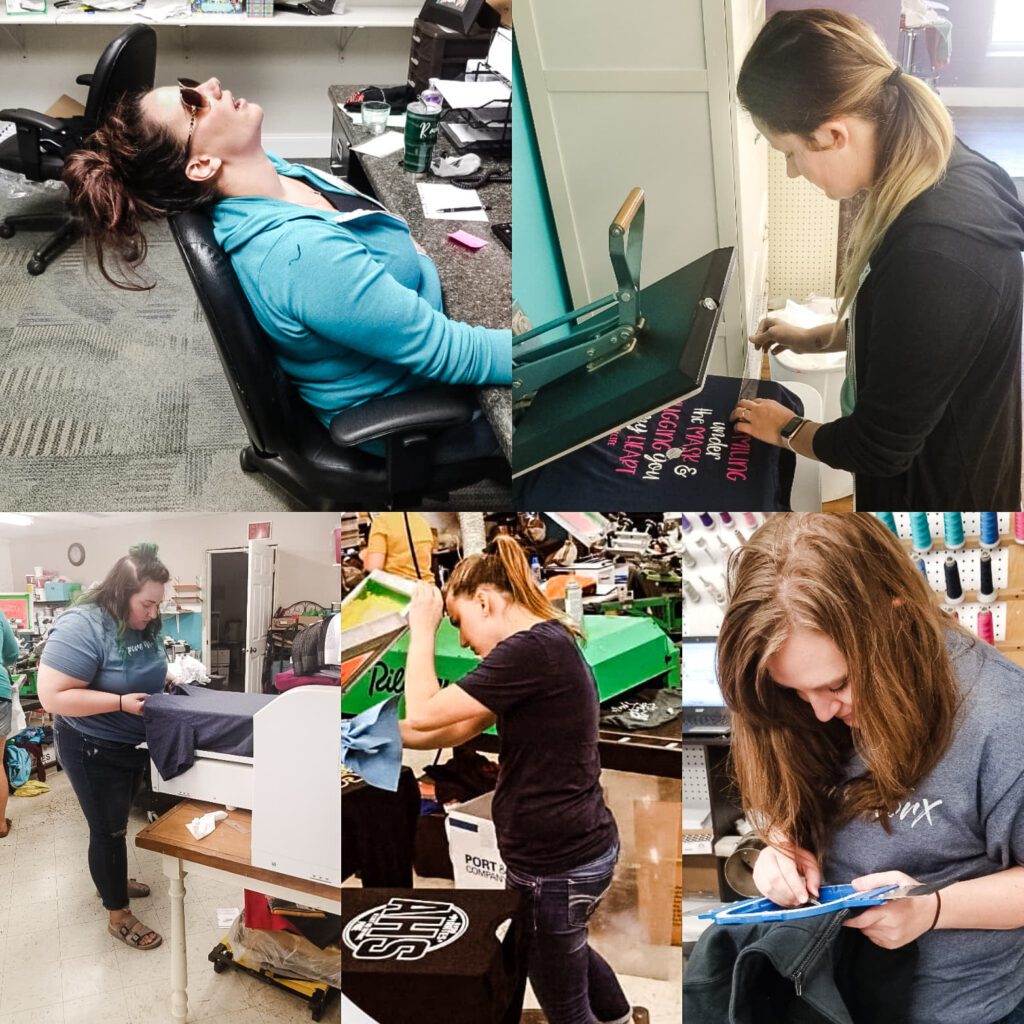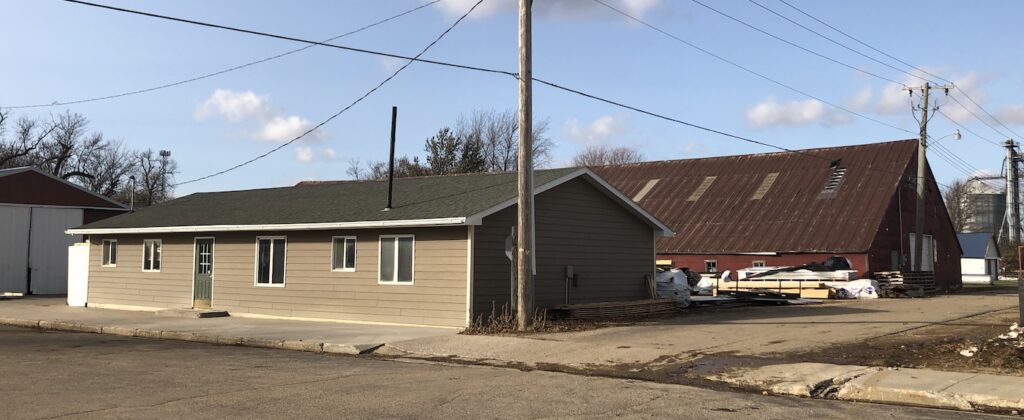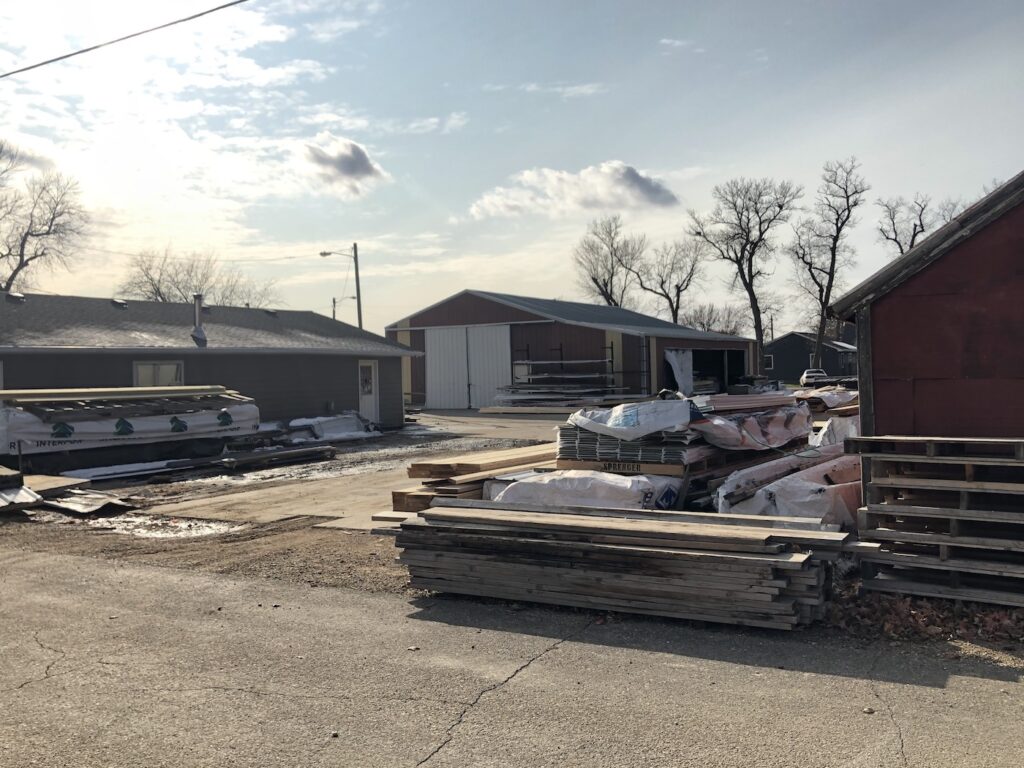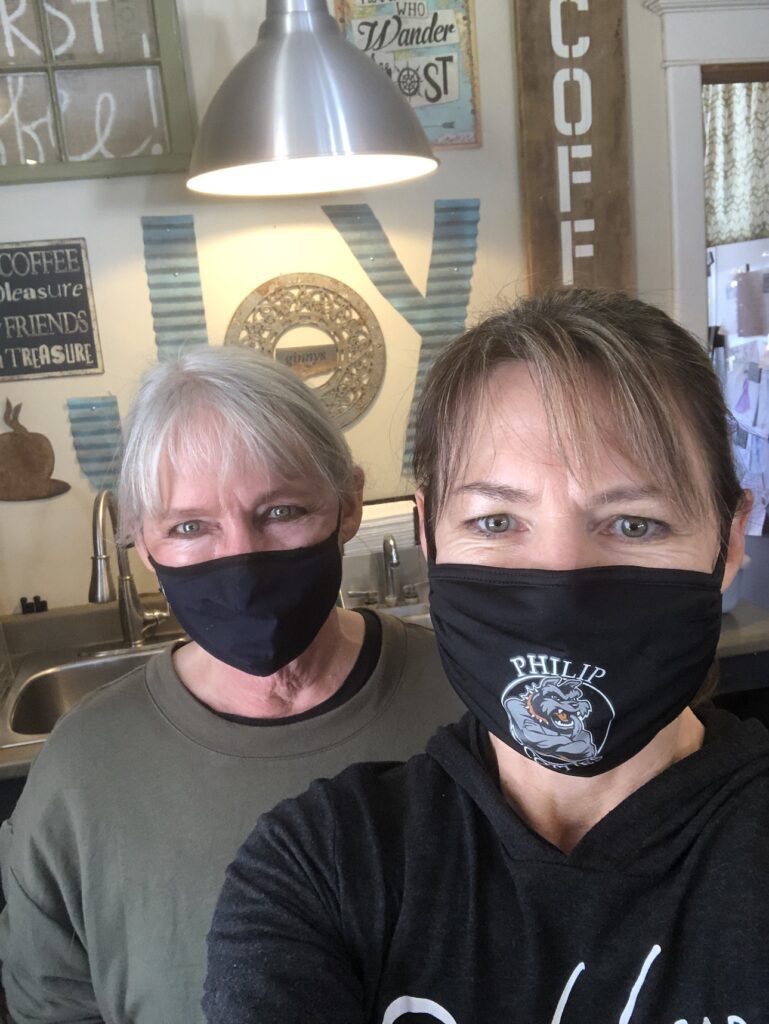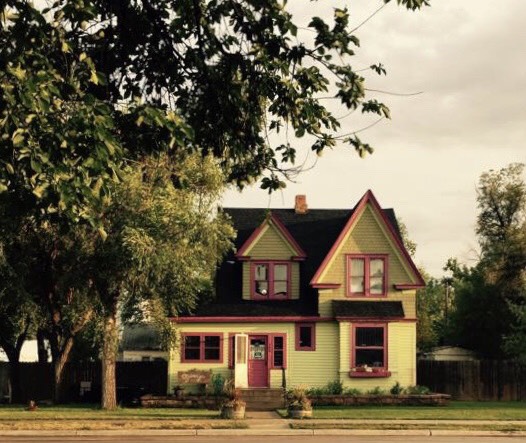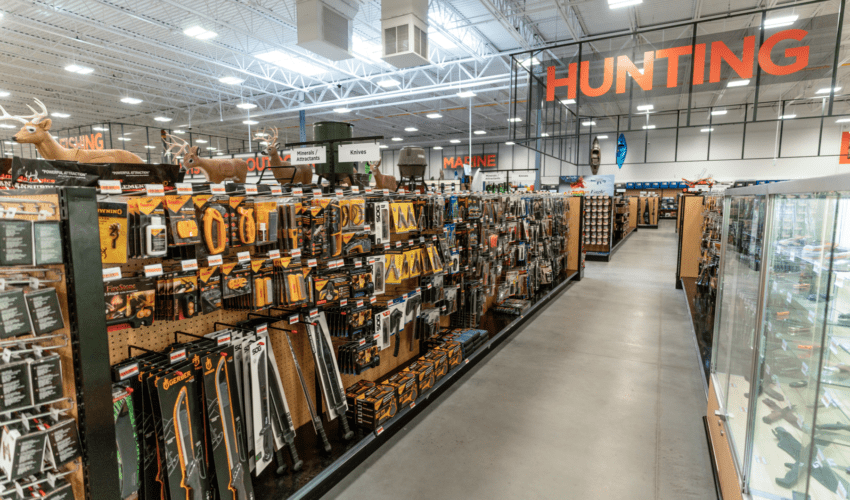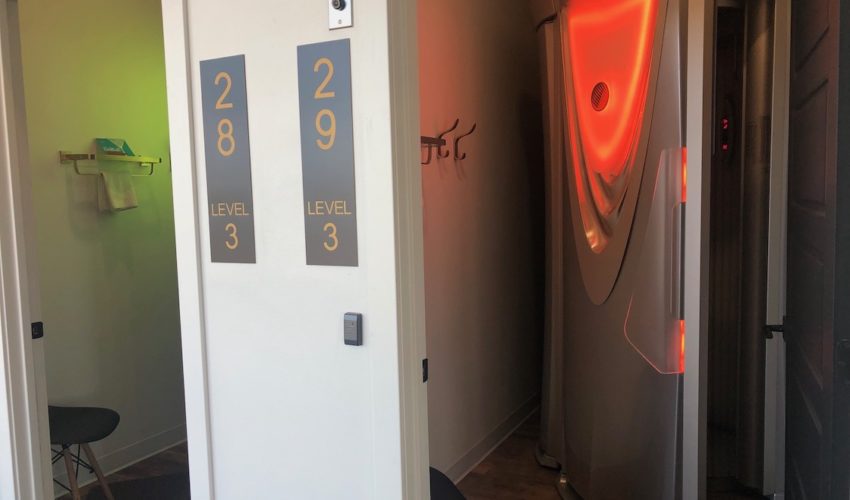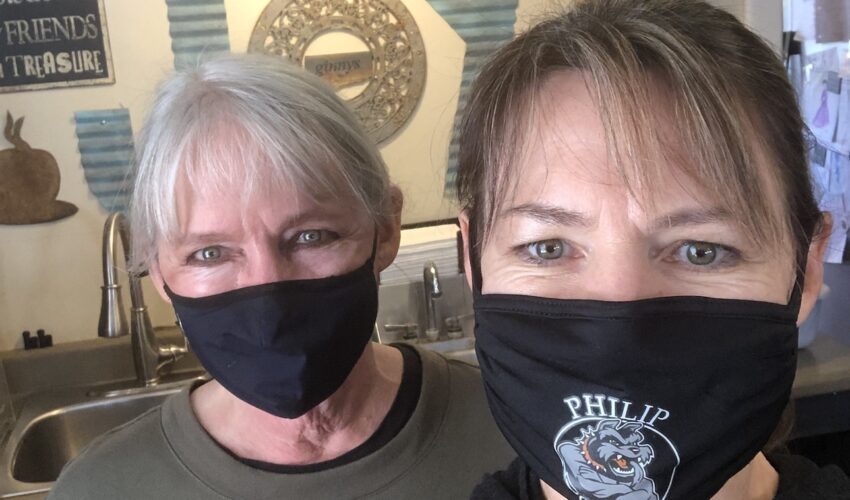Rural businesses fight pandemic hardships, community backlash
Dec. 7, 2020
By Staci Perry, for SiouxFalls.Business
The T-shirt designs at Apparel Worx start to tell the story.
“We stand together,” the shirts read, the design set against an outline of the state of South Dakota.
“But not too close,” it continues at the bottom.
The shirts first were marketed in the spring in the early days of the pandemic.
But as the year has worn on, rural mom-and-pop businesses like this one on Main Street in Wagner have had to contend with everything from community division to their already small staffs being impacted by COVID-19.
Standing together hasn’t always been easy to achieve as Apparel Worx owner Rachel Woods found out.
Like many in rural communities, Woods wears multiple hats.
As a member of the Wagner Community School Board, she voted against a school mask mandate in September. The mandate passed and then was swiftly rescinded when votes changed three days later.
As a result, some customers came to her business to express dissent and vowed to boycott her.
“The decisions we make as a school board member are 50/50 — half of our community wants it one way, and half of our community wants it another way. It doesn’t matter how I vote; it’s going to upset half of our population. There would be consequences to my business from one side or the other,” Woods said.
A few weeks later, Wagner’s school moved to distance learning for two weeks because of multiple COVID exposures and quarantines. Before returning students and teachers to the classrooms, the school board unanimously passed a mask mandate with examples for exceptions.
Woods also is a former nurse and a member of the Wagner Community Memorial Hospital Avera board of directors, which is where she gets information that helps her make decisions as a school board member. She supports the current school mask mandate.
“If it will decrease the spread and allow our school to stay open, I am for it when social distancing is not obtainable. I am not for masks at all times,” Woods said.
Apparel Worx is open for business as long as the school and child care centers stay open. Between Woods and her four full-time employees, they have nine children. One of the centers has been closed three times.
“It’s a ripple effect, because when they close and kids can’t go to school or day care, employees can’t go to work, and it’s debilitating to our entire community. Each time they close down, that takes away at least one or two employees every time, so it’s been a struggle each time trying to navigate that with scheduling,” she said.
That trickles into their workflow. Their normal turnaround time is two weeks, but with unplanned closures, supply issues and delayed shipping services, they schedule turnaround anywhere from three to four weeks out just to be safe.
Her sales decreased 30 percent in March through May and 15 percent in June through August. Because of school sports, Woods said sales are up about 10 percent since September.
“Sports are a big part of our business. We had sports, but their orders were a lot smaller I think just because people were leery about how long they were going to last. There have been no events really. We used to do 5K shirts, reunion shirts. We used to do different events that are no longer happening,” she said.
On the positive side, Apparel Worx has amped up its online fundraising platform to be even more robust and expanded into a new market.
“The biggest addition that has saved us during COVID is we started selling graphic T-shirts to boutiques wholesale,” Woods said. “We have two salesmen, one in North Dakota/South Dakota and one in Minnesota, who sell our tees to different boutiques. That has been really big for us. I guess comfy graphic tees are in right now.”
She’s now making plans for when the pandemic is over.
“I’m looking forward to being able to focus on making our business better, being able to serve our customers better and continuing to expand so that we can have an impact on our community through employment, sales tax and donating to local causes. Right now, I feel like we are just in survival mode, and those other things have gone by the wayside.”
Patience in short supply
The stay-at-home culture, low interest rates and stimulus money have contributed to the skyrocketing of construction and home improvement projects, but global supply chains can’t keep up.
Kevin Myers opened Elkton Lumber Inc. in the early 1980s during one of the worst economic cycles in history. After 36 years in business, he said this pandemic has changed everything.
“This is the most frustrating year I’ve ever had all around. If ever I’m going to quit, this year I think about it more than any year. I’d never go through this year again if I knew it was happening,” Myers said.
The majority of his frustrations derive from a supply chain disruption, which is exacerbated because of the smaller size of his operation, and the constant fluctuating prices. He can’t seem to get wholesalers to fill his orders for items they are stocking for the big lumberyards. For example, he has four or five suppliers and not one of them has OSB, an engineered wood similar to particle board, in their warehouse but big-box home improvement stores are still getting it.
“It’s stressful, and people don’t believe you all the time. When the other guys get the stuff, then they really don’t believe you when you tell them you can’t get it. It makes you feel real bad,” Myers said.
Myers has had several people cancel custom orders for windows and other specialty materials because they get impatient waiting for them to come in. He can’t cancel it on his end, so he gets stuck with the materials. The perception is business is booming for building supply owners, he said. The reality for small-town lumberyards like his is that they aren’t necessarily profiting from it.
“Lumber had been going up (in price) almost daily for a while, so you can’t hardly bid stuff because the next day it’s up again and you have little margins so you can’t make money on it,” Myers said. “Right now, national lumber is coming down, but the lumber we bought is now getting sold at a cheaper price than what I bought it at. My sales will probably be increased, but it doesn’t mean my profits increased.”
The city mask mandate in Brookings may have helped Elkton Lumber a little. Myers said for a while people weren’t going to the bigger towns like Sioux Falls and Brookings.
“It seems like for a while they were shopping a little more local because they weren’t getting out, which was good for my business. It seems like it’s changed because people are getting out again a little more,” he said.
Myers said he has pretty good clientele. He looks forward to the building supply industry stabilizing.
“Just being able to do things a little easier and being able to enjoy it. I think everybody has just kind of had it with this year overall,” he said.
Requiring masks makes national news
Trisha Larson and her mom and sister were featured on the food and dining website Eater for going against the grain by requiring masks of guests and employees at Ginnys coffee shop in Philip.
The headline read: “I Own a Coffee Shop in a Small Town. We’re the Only Business That Requires Masks.”
There’s no city mask mandate in Philip, but the family is committed to staying open and keeping the nearly 800 residents healthy, Larson said.
“There are people a lot smarter than us saying: ‘Wear masks. If everybody was wearing masks, we could reduce the spread.’ If they’re wrong, all we’ve done is be inconvenienced, but if they’re right, we might be saving somebody’s life. And that’s the thing in a small town — generally everybody knows everybody, so when you lose people, it hits the whole town,” she said.
In addition to local customers, Ginnys sees travelers from Interstate 90 who don’t mind the 15-minute drive for coffee. Philip is home to a school, clinic, hospital, assisted living center and an expanding nursing home. Mitigating the spread of the virus is critical to keeping the town’s economy going. Larson said many of the health care workers and others have expressed their appreciation for Ginnys’ mask policy.
“We don’t have a lot of beds here, and our health care workers went through a lot of work to prepare, so it’s also about helping them so they don’t get overwhelmed and aren’t short-staffed,” she said.
“After our article was published in Eater, we had several people from outside our area express their appreciation and support. One gentleman from Canada purchased a gift card online to show his support. A woman from Rapid City, whose daughter is a health care worker, purchased a gift card for our local health care workers. She wanted to thank us for doing our part. Another family from Rapid City traveled to Philip just to get lunch to go from Ginnys to help support our business.”
Not everyone likes Ginnys’ mask policy.
“There are people who bite the bullet and support us because they want their coffee,” Larson said.
Sales are down 25 percent from this time last year, and Ginnys is experiencing pandemic inconveniences such as supply chain shortages, employees with child care exposure to the virus and price increases on milk and meat.
They’ve implemented online ordering, and they plan to keep it because customers like the convenience.
When the pandemic is over, people will still need coffee. Ginnys will be there for them.
“We opened Ginnys because we felt our community would be a better place with us in it. We still feel that way and have hope for the future. We look forward to seeing our customers meet at Ginnys and being the social hub of Philip again. We miss seeing their faces and hearing laughter in our seating area,” Larson said.

